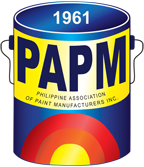

Campbridge Paints Inc. © All Rights Reserved 2025
Membership and Accreditation





U.S. GREEN BUILDING COUNCIL A nonprofit organization committed to a prosperous and sustainable future for our nation through cost-efficient and energy-saving green buildings. USGBC works toward its mission of market transformation through its LEED green building certification program, robust educational offerings, a nationwide network of chapters and affiliates, the annual Greenbuild International Conference & Expo, and advocacy in support of public policy that encourages and enables green buildings and communities.
ASTM International, originally known as the American Society for Testing and Materials (ASTM), is one of the largest voluntary standards development organizations in the world-a trusted source for technical standards for materials, products, systems, and services. Known for their high technical quality and market relevancy, ASTM International standards have an important role in the information infrastructure that guides design, manufacturing and trade in the global economy.
ENERGY STAR is a joint program of the U.S. Environmental Protection Agency and the U.S. Department of Energy helping us all save money and protect the environment through energy efficient products and practices. Results are already adding up. Americans, with the help of ENERGY STAR, saved enough energy in 2009 alone to avoid greenhouse gas emissions equivalent to those from 30 million cars — all while saving nearly $17 billion on their utility bills.
International Green Construction Code was developed by the International Code Council. ICC develops the codes and standards used to construct residential and commercial buildings, including homes and schools. The International Codes, or I-Codes, published by ICC, provide minimum safeguards for people at home, at school and in the workplace. The I-Codes are a complete set of comprehensive, coordinated building safety and fire prevention codes. Building codes benefit public safety and support the industry’s need for one set of codes without regional limitations.
The Partnership for Clean Air (PCA) is a multi-sector network in the Philippines with organizational members from government, civil society, academic institutions and private sector. PCA's mission is to promote air quality management as a multi-stakeholder effort in the Philippines. PCA facilitates air quality activities of members and stakeholders. It was launched in June 2001 and incorporated as a non-stock, non-profit corporation in November 2003.
The Philippine Association of Paint Manufacturers, Inc. (PAPM) was created in the year 1961 by a group of professional men and women with a general aim of professionalizing the paint manufacturing industry and its constituents. It is a privately operated non-stock, non-profit, non-sectarian, and non-political organization. Since its beginning, the PAPM has evolved into a group that concerns itself primarily with the welfare of the paint industry. More than that, it is a venue for continuous technical education and improvement among its more that 70 member companies, which have also proven their competence by surviving through the most difficult years.
